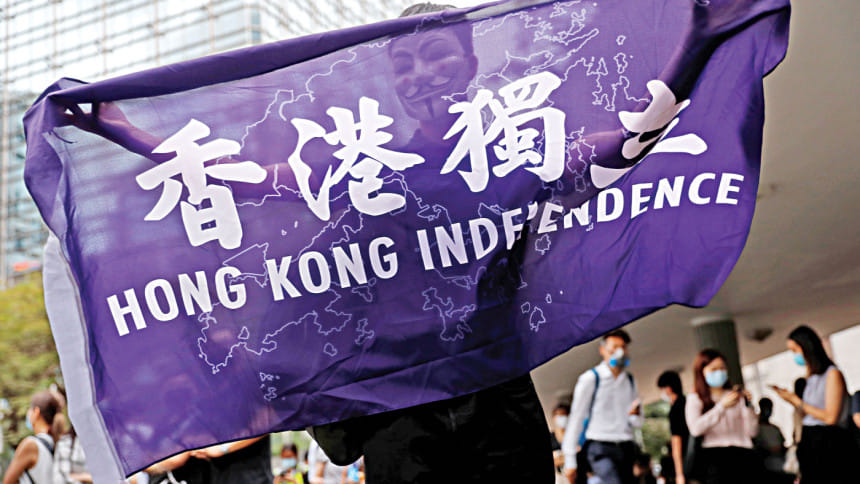China unveils HK security law

Beijing unveiled details of its new national security law for Hong Kong yesterday, paving the way for the most profound change to the city's way of life since it returned to Chinese rule in 1997.
The much-anticipated legislation, which has provoked deep concerns in Washington and Europe, includes a national security office for Hong Kong to collect intelligence and handle crimes against national security, the official Xinhua news agency reported.
It said Hong Kong leader Carrie Lam could also appoint specific judges to hear national security cases, a move likely to unnerve some investors, diplomats and business leaders in the global financial hub.
National security activities would protect human rights and freedom of speech and assembly, it added, without providing details.
China says the draft law is aimed at tackling separatist activity, subversion, terrorism and collusion with foreign forces, but critics fear it will crush wide-ranging freedoms that are seen as key to Hong Kong's status as a global financial centre.
The details of the law were unveiled following a three-day meeting of the top decision-making body of China's parliament.
The exact time frame for enacting the law was unclear, although political analysts expect it will take effect ahead of key Legislative Council elections in Hong Kong on Sept 6.
China's move to impose the law directly on Hong Kong, bypassing the city's legislature, comes after a year of sometimes violent anti-government and anti-Beijing protests that mainland and local authorities blame "foreign forces" for fomenting.
When Britain handed over Hong Kong to China in 1997, China promised to allow the city a high degree of autonomy for 50 years under what is known as the "one country two systems" formula of governance.
On Friday, Secretary of State Mike Pompeo said Washington would in future treat Hong Kong as a Chinese city, rather than a semi-autonomous one, and the United States was working its way through a decision-making process over who would be held accountable over curbs to Hong Kong's freedoms.
Underscoring global concerns over the move, the European Parliament on Friday voted in favour of taking China to the International Court of Justice in The Hague if Beijing imposes the security law on Hong Kong.

 For all latest news, follow The Daily Star's Google News channel.
For all latest news, follow The Daily Star's Google News channel. 



Comments